- Home
- slideshows
- miscellaneous
- 15 ways millennials changed the world in the 2010s
15 ways millennials changed the world in the 2010s
PERSONAL LIFE: Financial constraints and skyrocketing home prices have caused millennials to delay homeownership or take new means to get there.

Millennials are also delaying marriage because of money, and they're more successful for it.
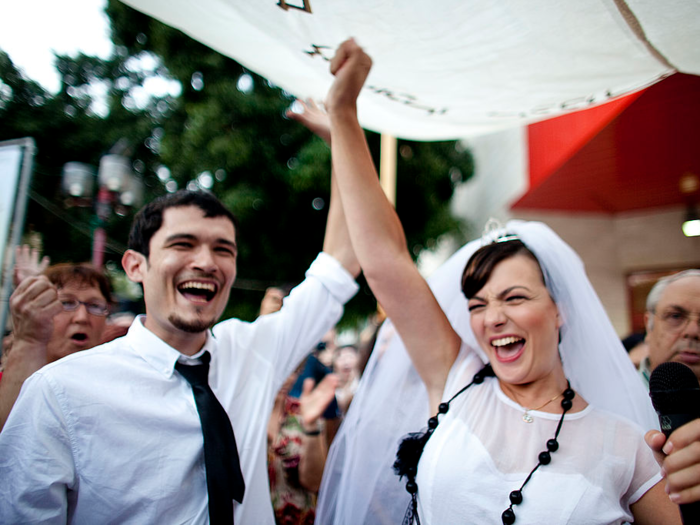
Millennials tend to fear getting divorced and are financially burdened, so they're marrying later in life as they take time to get to know their partner, accumulate assets, and become financially stable. In 2017, the average age of a first marriage was 27 for women and 29 for men; in 1980, it was 22 and 25, respectively.
Millennials are also shedding the stigma of prenups. Because they fear divorce and marry at a later age, more millennials are predisposed to protect their interests, especially when it comes to the assets — and the debt — they've had more time to accumulate before marrying.
It's all driving what experts have estimated is a 24% decline in the US divorce rate since the 1980s, Hannah Smothers reported for Cosmopolitan.
But some millennials aren't getting married at all because they find marriage less important than it used to be, Rachel Sussman, a psychotherapist and relationship expert at Sussman Counseling, previously told Business Insider. An estimated 25% of millennials are unlikely to ever marry.
By delaying marriage, kids, and moving into their own place, millennials are reinventing the typical American family.

The traditional nuclear-family structure has been replaced with varying family arrangements, reported Ellen Byron for The Wall Street Journal.
It's partly because millennials are delaying marriage, which is causing them to have kids later in life: The US birthrate is at its lowest in 32 years, Bill Chappell for NPR reported. More 30-something women are having babies than women in their 20s for the first time ever — a difference that grew in 2018, according to a CDC report.
Finances are one of the top reasons why American millennials aren't having kids or are having fewer kids than they considered ideal, according to a New York Times survey.
Millennials are also changing the family structure by contributing to a rise in multi-generational households, Byron wrote. From 1980 to 2016, the number of Americans living in a multi-generational family household has increased from 12% to 20%.
It goes back to millennials' likelihood of living at home with parents or living with a roommate to share housing costs. Beyond that, some millennials are also moving back home to take care of their parents, reported Clare Ansberry of The Wall Street Journal.
In the workplace, millennials are seeking purposeful careers, autonomy, and benefits for a better life.

Gallup called millennials "the job-hopping generation" — they generally don't plan to stay with their employer for more than a few years, Business Insider's Rachel Premack reported.
Younger millennials (and Gen Z) are the strongest job market in a generation, Glassdoor chief economist Andrew Chamberlain told Premack. They're demanding new perks and benefits, like student-loan repayment programs, paid paternity leave, complimentary food, fitness discounts, and freezing their reproductive eggs. Companies are meeting the demand.
Millennials also want flexibility and to work remotely. It's fueled the gig economy; a 2018 Deloitte report stated that nearly half of self-employed Americans by 2020 will be millennials.
Half of millennials are participating in the gig economy by developing side hustles, reported The New York Post in 2017. This is yet another effect of their financial struggles — income growth for young adults hasn't kept up with staggering increases in home prices and education.
The workplace is also taking a toll on millennials, who reported they suffer from higher rates of burnout than other generations; in a January 2019 BuzzFeed article, Anne Helen Petersen coined them the "burnout generation." Later that year, The World Health Organization classified burnout as a "syndrome," medically legitimizing the condition for the first time.
RETAIL: Millennials are shopping online and spending more money on experiences, thereby changing the face of American retail.
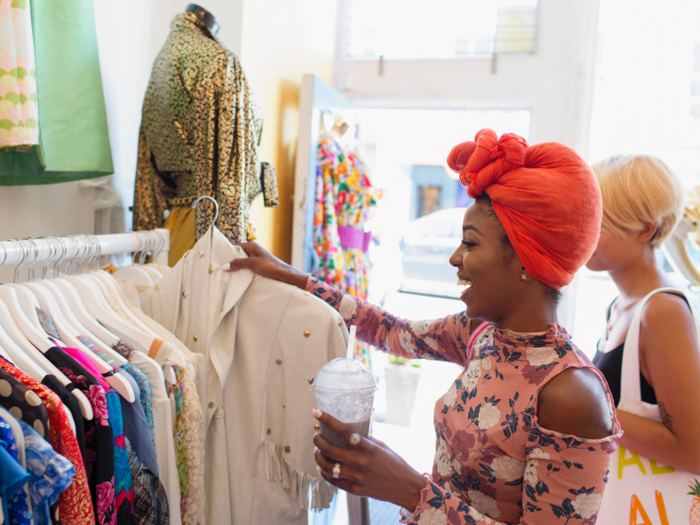
Throughout the past decade, millennials have been accused of "killing" various industries, from beer and napkins to casual dining chains and cereal.
As millennials have shifted the majority of their purchases to online transactions, traditional apparel retailers have struggled. Many have downsized or shut down locations altogether, Ashley Lutz previously reported for Business Insider. It's fueled the retail apocalypse in America. Retailers have also shifted their marketing strategies to appeal to the generation and re-focused their advertising towards mobile, as many millennials shop on their smartphones.
The shift in shopping habits is also causing new types of experiential retailers to pop up, like Neighborhood Goods, which features brands popular on Instagram.
"The fashion industry has undergone one of the most dramatic makeovers in recent history – no doubt influenced by the millennial consumer," said Marshal Cohen, chief industry analyst at NPD, told Lutz.
Millennials have also increasingly turned their attention to athleisure apparel and rental retailers, Lutz reported. But that's when they're shopping for material items: In general, millennials prefer to spend money on experiences over things, and it's given rise to the experience economy.
Millennials have turned the luxury sector on its head by making it more casual and accessible.
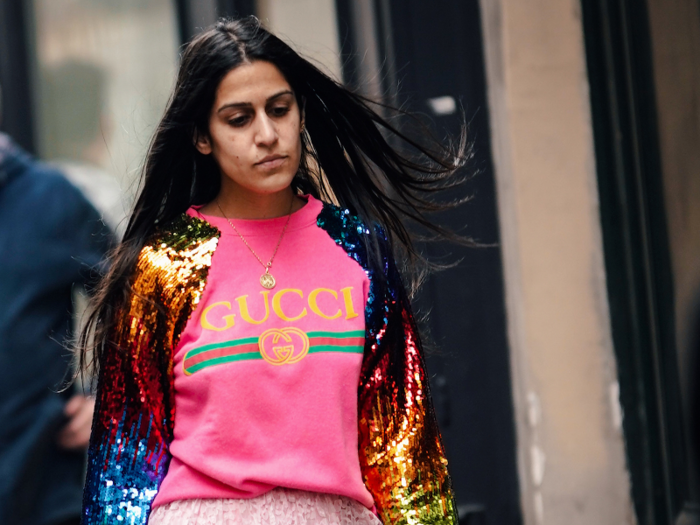
Like the rest of their generation, rich millennials prefer to spend on experiences — but they pay extra to heighten these experiences with VIP treatments and customization.
They're also choosing brands based on their missions and values rather than out of staunch loyalty, placing more significance and consideration into a brand when buying.
Rich millennials are creating new trends and status symbols, namely expensive sneakers and streetwear, which have become entwined with luxury fashion. Look no further than the daily tech CEO uniform of sneakers and a t-shirt or the bohemian style of Brooklyn moms to see how they're bringing a casual touch to the luxury industry. Even fine dining has become more about informality and fun, a luxury restaurant group CEO previously told Business Insider.
The share economy has also trickled into the luxury world; rental services like Rent the Runway have made luxury goods more accessible to others.
So has the Internet. "Flash sales sites served as an entry point into the world of luxury, placing brands that were not previously accessible or on millennials' radar, top of mind," Peter Niessen of American Express Insights told Larissa Faw for Forbes.
Millennials are also changing the wedding industry.
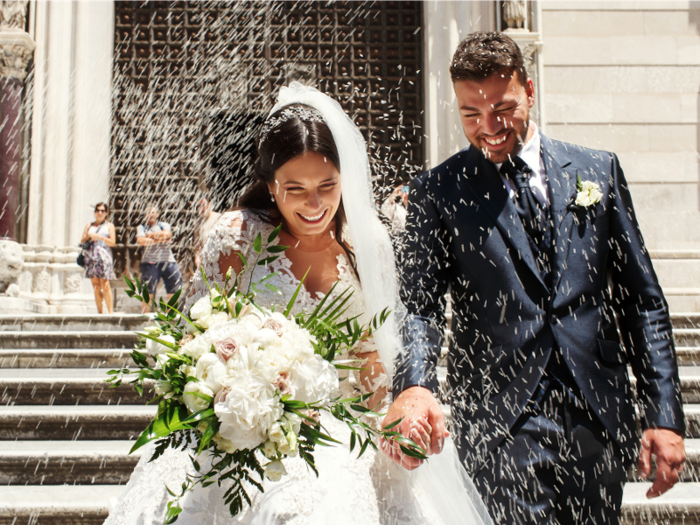
Business Insider's Mary Hanbury reported that millennials have changed weddings: They're opting for unconventional venues such as barns and farms over banquet halls and hotel reception rooms. They're also gravitating toward more casual wedding dresses.
And because they're waiting longer to get married and cohabitating first, millennials have time to build a collection of household staples. As a result, "honeyfunds" and cash have become more popular wedding gift options than items like toasters or gravy boats, Hanbury added.
With the rise of wedding blogs and Instagram, couples also feel the need to have a picture-perfect wedding. Online lenders told The Washington Post they're issuing up to four times as many wedding loans as they did a year ago as millennial couples try to have their dream wedding. As a result, the average wedding cost in the US has risen to $38,700.
With more than half of couples today marrying someone from a different cultural or religious background, multiple wedding ceremonies are a rising trend, Jessica Schiffer reported for The New York Times. Combined, these ceremonies cost an average of $50,000, but can exceed $100,000.
Millennials spend a lot on their health, making them key players in the wellness industry boom.
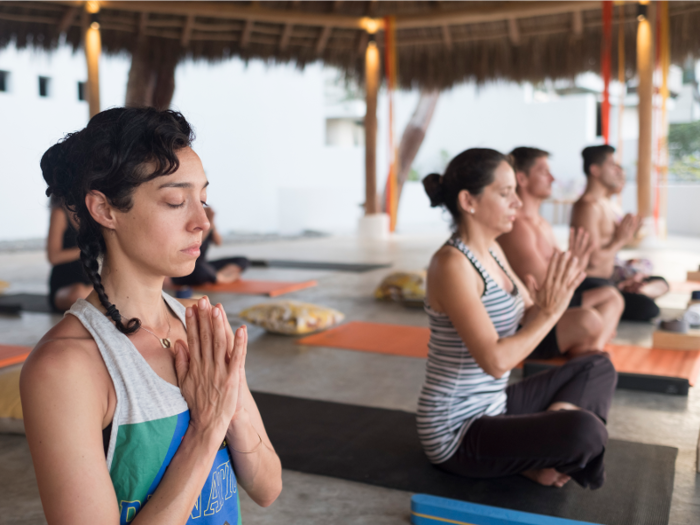
Health and wellness have become luxury status symbols, Vogue reported in 2015. From 2015 to 2017 alone, the wellness industry grew by more than 12% and is now worth $4.2 trillion globally, according to a report by the Global Wellness Institute.
Millennials have been leading the way in this boom. Sanford Health called millennials the "wellness generation," and some of them even spend more on fitness than tuition, Jeanette Settembre of MarketWatch reported. They also spend on pricey gym memberships, athleisure clothing, and water bottles.
Brands are changing their offerings to meet millennial demand. "Wellness is increasingly regarded as a modern embodiment of luxury, and accordingly, an array of spas and studios offering treatments like cryofacials, weeklong retreats, and vitamin IV drips are delivering those experiences," Business Insider's Lina Batarags wrote.
Millennials are even choosing healthier alcoholic drinks that are low in both calories and sugar. Just consider the drinks of summers' past, from hard seltzer to canned wine.
TECH INNOVATION: Millennials are the social media generation, which has changed the way people live and brands sell.
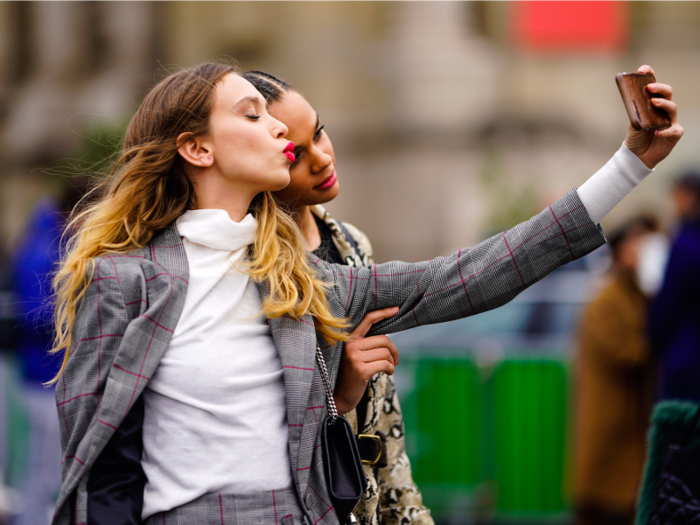
YouTube and Facebook, both established in the 2000s, peaked in the 2010s. The early 2010s also saw the launch of Instagram and Snapchat. All four of these have become platforms for bloggers and celebrities, giving rise to the very prolific influencer industry. Specific niches have developed within this stardom, such as home influencers, virtual influencers, and mukbang influencers.
Social media has created an opportunity for product lines and online retail. Millennials are building multimillion-dollar beauty empires out of massive Instagram and Snapchat followings, such as Emily Weiss' Glossier or Rihanna's Fenty Beauty.
Instagram, in particular, is influencing users and shaping industries. As more millennials take to Instagram for style ideas, brands and fashion magazines are losing some of their clout to influencers, wrote Marc Bain for Quartz.
Millennials aren't only shopping for clothes and products that look good on Instagram — they're also traveling based on Instagrammability. They're flocking to destinations that look good on Instagram, like Lisbon, as well as photogenic hotels — luxury hotels are employing simple design aesthetics for this very reason.
Millennials' desire for convenience has given rise to the rental, share, and delivery economies.

Millennials have been called "generation rent," and the number of rental services that have popped up during the past decade show why: There's Rent the Runway for fashion; Airbnb for travel; Lyft for transportation; Fernish for furniture. These start-ups have even caused traditional retailers to enter the market with their own competitive rental offerings, from IKEA to Urban Outfitters.
In an article for The Times, Sapna Maheshwari wrote: "Many young American urbanites have resigned themselves to a life of non-ownership." These days, everything is up for lease, she said.
Renting isn't the only industry making lives easier for millennials. Streaming services such as Netflix and Hulu, which millennials have turned to to cope with burnout, really took off in the past decade. Consider, too, apps designed around efficiency, such as the influx of meal-delivery apps, from Seamless to Postmates, which symbolize "convenience maximalism," Derek Thompson for the Atlantic wrote. While the latter app was established in 1999, it didn't become buzzworthy until this decade.
As the market strategists at ConvergEx Group wrote in a note to clients, "Renting and sharing allow us to live the life we want without spending beyond our means."
Dating apps also make it more convenient for millennials to find love — and they've completely transformed today's dating world.

Online dating was nothing new in the 2010s, but it got a huge facelift with dating apps. 2012 was a big year in the dating app scene: Tinder, Hinge, and Coffee Meets Bagel all launched. Two years later, Bumble was released.
College-aged adults are most likely to date online, according to a 2016 article by Robinson Meyer for The Atlantic. Millennials have even taken to dating apps as a way to show off their wealth and status.
Meeting online is now the most popular way American heterosexual couples connect, according to a new study published in the Proceedings of the National Academy of Sciences. In the 1940s, heterosexual couples were most likely to meet through family, in church, and in the neighborhood.
A 2018 Tinder survey found that nearly three-fourths of millennials "made a conscious decision" to stay single. Darcy Sterling, a licensed clinical social worker and Tinder's relationship expert, told USA TODAY that millennials are questioning societal norms and seeking independence. It all ties back to millennials' decision to marry later.
When they are ready to find love, they're outsourcing it — some are paying a New York City-based woman $5,000 to help them flirt on dating apps.
All of these innovations in tech have driven a heavy startup culture, as millennials identify and cater to the needs of their generation.

What do dating apps like Hinge, delivery apps like Postmates, social media platforms like Instagram, and sharing services like Lyft all have in common? They're all startups.
Millennials have been identifying holes and new opportunities in various industries to cater to their generation's need for convenience. Consider millennial networking startup brunchwork. In fact, millennials are on track to become the most entrepreneurial generation ever.
It's a side effect of millennials' side hustle gig economy. Lisa Curtis for Forbes called it "the millennial start-up revolution." She wrote that millennials also love startups because they crave more meaning and because the Internet has made it easier than ever to create them.
Some of these startups, like the aforementioned beauty brand Glossier, have blossomed out of social media. Online retail startups have centered their marketing strategy around social media to appeal to their generational peers — their products are not only designed for Instagrammability, but would be pushed out by influencers themselves. Consider Casper and Away, which both reached unicorn status this year.
These startups aren't just based in Silicon Valley and America; from Tel Aviv to Stockholm, several cities around the world are home to booming tech industries.
ACTIVISM: Millennials are destigmatizing taboo topics their parents wouldn't discuss, namely financial and mental health.

Millennials are more likely to discuss their finances with friends, siblings, and coworkers than baby boomers are, according to a survey by Insider and Morning Consult.
Look no further for proof of this than the increasing number of voyeuristic looks on finances in media, from Refinery29's Money Diaries to the Ashton Kutcher produced "Going From Broke," a reality TV series that tackles student debt.
Money stress is linked to the rise in poor mental health among millennials, but the generation is addressing it head-on by helping to destigmatize therapy.
"Raised by parents who openly went to therapy themselves and who sent their children as well, today's 20- and 30-somethings turn to therapy sooner and with fewer reservations than young people did in previous eras," Peggy Drexler wrote in an essay for The Wall Street Journal.
Celebrities such as Demi Lovato and Lady Gaga, who have been open about their depression struggles, and conversations on social media have also helped normalize therapy, Drexler wrote.
As college costs increase and more millennials rack up student-loan debt, they've pushed the issue to the forefront of a nationwide debate.
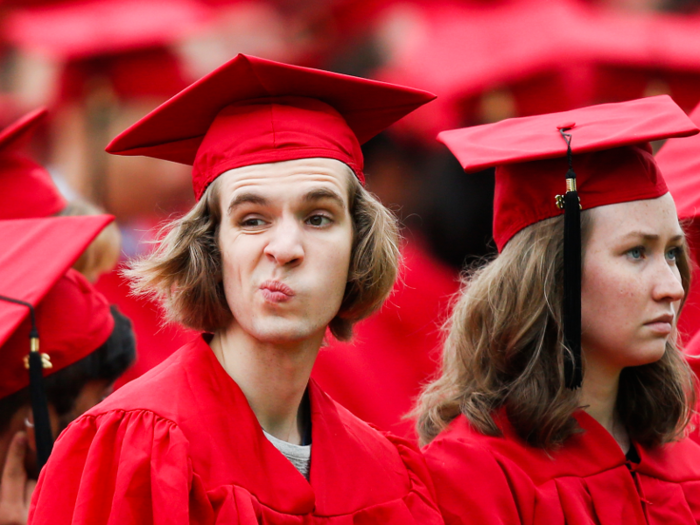
Millennials are more open to talking about money and delaying life milestones partially because they're grappling with debt.
According to the New York Federal Reserve, millennials have accumulated more than $1 trillion in debt, a 22% rise in the past five years. That's more than any other generation in history, making them the most indebted generation. It explains why most millennials define financial success as being debt-free.
A decent portion of that debt is student-loan debt. Millennials are certainly not the only generation contributing to the nationwide student-debt total exceeding $1.5 trillion, but as more of them attended college and the price of tuition rises, they're increasingly carrying the weight of it. According to Student Loan Hero, the average student-loan debt per graduating student in 2018 who took out loans was a whopping $29,800.
It's pushed the issue to the front of the 2020 election — Democratic presidential candidates, from Sen. Elizabeth Warren to Rep. Seth Moulton, have been proposing policies to offset the cost of college.
As the most diverse generation to date, millennials are making a difference in politics and social issues.
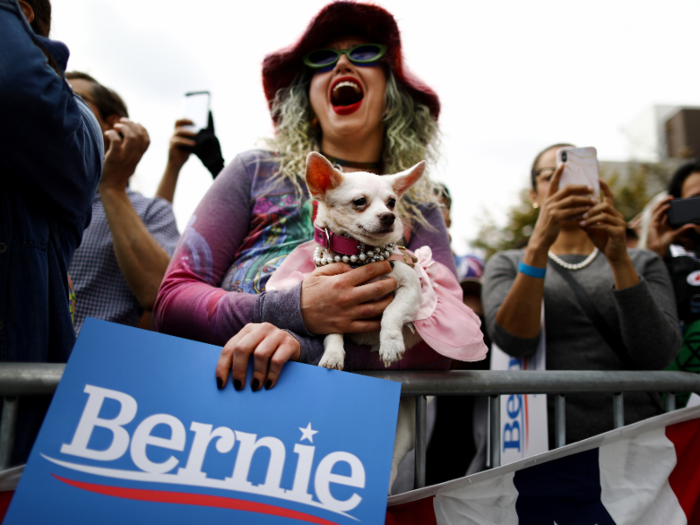
Millennials are embracing socialism: In a recent YouGov poll, 70% of millennials said they'd be somewhat or extremely likely to vote for a socialist. It's likely because of their debt and stagnant wages.
Consequently, 2020 presidential candidates are proposing socialist or socialist-inspired policies to appeal to this cohort.
Millennials are the most diverse generation in US history to date, giving them broader perspectives. "To a degree not seen in any previous generation, millennials see themselves in the shoes of others who don't look like them, speak the same language, have the same education, or come from the same background," wrote Peter Economy for Inc.
They're thus more active about social justice and inequality issues, participating in movements like #BlackLivesMatter and the Women's March.
A 2019 report by the Case Foundation, which studied more than 150,000 millennials, found they care most about civil rights/racial discrimination, healthcare, education, and employment. They're also confident their actions, whether big or small, will elicit change. Consider Resource Generation, a group of wealthy American millennials who put their money toward social justice causes.
Millennials were also the first generation to overwhelmingly support same-sex marriage, which became legalized in 2015, Business Insider's Rachel Premack reported.
Popular Right Now
Popular Keywords
Advertisement